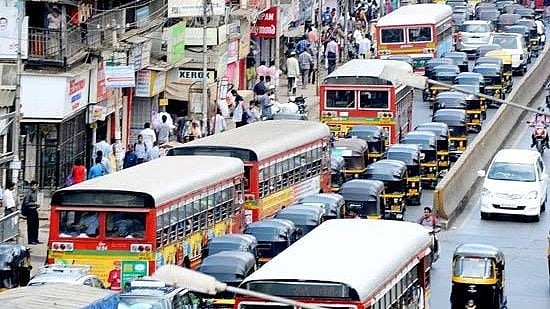In 1925, Henry Ford had told a New York Times reporter that “There’s enough alcohol in one year’s yield of an acre of potatoes to drive the machinery necessary to cultivate the fields for a hundred years.”
In India, something similar can be said about ethanol, which many are now beginning to see as a viable alternative and a fuel of the future for our country. The government is pushing it as if there’s no tomorrow, and rightly so. Ethanol checks all the boxes — this is how.
One, it promises to fully revive the sugar industry many considered dead, and through it, the rural economy where 2/3rd of our countrymen live. And it almost has. Several sugar companies are back in the black and those that are not, sooner than later will. And there can’t be happier news. Ours is a predominantly agrarian economy and the sugar industry supports this economy socially and economically like no other industry. Crores of lives depend on it directly, and many times more indirectly. A profitable sugar industry means livelihood to lakhs of people in rural India which means a robust rural economy.
Two, we can produce as much ethanol as we need given the abundance of raw material (sugarcane/molasses is only one raw material, there are others as well). Both Maharashtra and Uttar Pradesh, the country’s two top sugar producing states, grow enough sugarcane and can grow more to sustain future demand. The state has nearly 30 lakh hectares of land under sugarcane. It has ample raw material (sugarcane/molasses) available to produce more. The state today has 55 ethanol producing distilleries (out of the total of 70 odd) and has a capacity to produce 200 crore litres per annum, which makes it the country’s largest ethanol producer. More capacity is being set up, both in the public and private sectors.
Three, more capacity means more jobs in the hinterland, which in turn would mean stronger, more sustainable local economies. It will also mean less migration to large cities. The Bajaj Group alone has 9,000 people employed across its 20 mills in UP. Other players have a large number too. Other private players have expansion plans. All this will create jobs, livelihoods.
Four, more ethanol promises to reduce not only our import bill (spent on crude oil), but also our dependence on a foreign country for energy. Energy is to a country what blood is to human body. Human body can’t survive on borrowed blood. The body has to produce enough of it on its own. Ukraine is a recent grim reminder.
Lastly, ethanol is green energy, so it reduces pollution in the environment overall. Thanks to the presence of oxygen in its molecular structure, it produces cleaner burn. Compared to gasoline, it emits 20% less hydrocarbons and carbon monoxide.
Government estimates that the country would require some 1,000 crore litres of ethanol to achieve 20% blending by 2025-26.The current capacity, according to ISMA (Indian Sugar Mills Association) is less than half of that i.e 440 crore litres. The state of Uttar Pradesh is already country’s largest producer of ethanol producing about one fifth (200 crore litres) of that. It produced 1/5th of that (24 crore litres) five years ago. This has happened by consciously and strategically leveraging the abundance of raw material, most of it since 2014 under the current government, and this is how.
It started with modifying the Ethanol Blended Petrol Programme (EBP) with an aim to increase domestic production of ethanol. It entailed simplifying the ethanol procurement process, streamlining the supply chain, both of which helped improve supply-side constraints; aggressively pushing it among auto manufacturers has helped the demand side. EBP isn’t new. But to modify it, to incentivise production and consumption, and to relentlessly push it among potential users (eg auto industry), demonstrates not only the government’s vision but also its conviction that ethanol is not only a cure-all but a key to becoming and remaining a global superpower. Like coal, we have availability of abundant raw material to make as much ethanol as we want or need, and of the quality that we need. As a representative of a company that supplied ethanol to the Indian army in World War II, expect me to know this. As regards demand, there’s enough domestically. Let’s just go ahead and produce more.
Neeraj Jha is Group President and Chief Communications Officer, Bajaj Group









